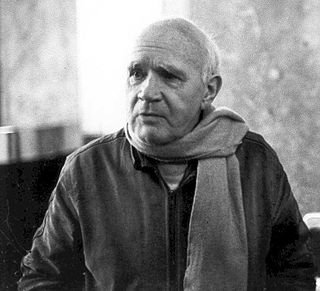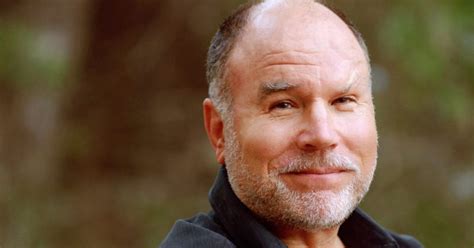A Quote by Georg C. Lichtenberg
Everyone who has ever written will have discovered that writing always awakens something which, though it lay within us, we failed clearly to recognize before.
Related Quotes
For as the aged, or those whose sight is defective, when any book, however fair, is set before them, though they perceive that there is something written, are scarcely able to make out two consecutive words, but, when aided by glasses, begin to read distinctly, so Scripture, gathering together the impressions of Deity, which, till then, lay confused in our minds, dissipates the darkness, and shows us the true God clearly.
Let us, on both sides, lay aside all arrogance. Let us not, on either side, claim that we have already discovered the truth. Let us seek it together as something which is known to neither of us. For then only may we seek it, lovingly and tranquilly, if there be no bold presumption that it is already discovered and possessed.
The reason I've gotten into script-writing, which was accidental to begin with, was that I found it was a far more effective medium for violence. Which is something that I'd always written in songs, but the violence always sat strangely within a song. And I was always interested in the way in which you listen to murder ballads and things like that - these weird lines would kind of come out, like, I drug her by the hair or something - that sat weirdly in the song. Film seems to be a medium designed for betrayal and violence.
More than by fear of going astray, my hope is that we will be moved by the fear of remaining shut up within structures which give us a false sense of security, within rules which make us harsh judges, within habits which make us feel safe, while at our door people are starving and Jesus does not tire of saying to us: 'Give them something to eat.'
Every truth ever discovered -- each new light that will ever burn bright -- already exists in our consciousness. All we will ever know and share about love, humility, compassion, and sacrifice -- the secrets that will reveal and then resolve old sorrows -- awaits us within ourselves. Hidden in this truth is our great promise, both as individuals and as a race of beings.
The hermeneutic consciousness, which must be awakened and kept awake, recognized that in the age of science philosophy's claim of superiority has something chimerical and unreal about it. But though the will of man is more than ever intensifying its criticism of what has gone before to the point of becoming utopian or eschatological consciousness, the hermeneutic consciousness seeks to confront that will with something of the truth of remembrance: with what is still and ever again real.
Once a poet always a poet, and even though I haven't written poems for a long time, I can nonetheless say that everything I've ever learned about writing lyrical fiction has been informed by three decades of writing in lines and stanzas. For me the real drama of fiction is almost always the drama of the language.
I don't think anyone is ever writing so that you can throw it away. You're always writing it to be something. Later, you decide whether it'll ever see the light of day. But at the moment of its writing, it's always meant to be something. So, to me, there's no practicing; there's only editing and publishing or not publishing.
Although our moral conscience is a part of our consciousness, we do not feel ourselves on an equality with it. In this voice which makes itself heard only to give us orders and establish prohibitions, we cannot recognize our own voices; the very tone in which it speaks to us warns us that it expresses something within us that is not of ourselves.
When something tragic has happened, you'll find that you, the tragicee, become the person that has to make everything comfortable for everyone else.... As a tragicee and future divorcee, you'll also find that people will question you on the biggest decisions you've ever made in your life as though you hadn't thought about them at all before – as though, through their twenty questions and dubious faces, they're going to shine light on something that you missed the hundredth time around during your darkest hours.
Studios are often very nervous of things they don't recognize, by which I mean things that haven't been done before, and therefore, they take a really original idea, and they recognize the originality, and then they try and make it look like something they recognize. So they try to turn it into something far more procedural.




































